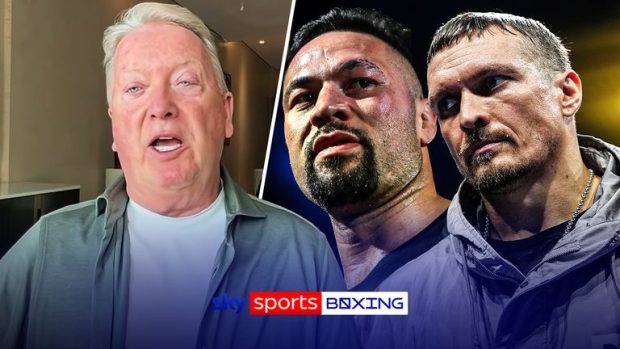The U.S. State Department has sought to justify a travel ban that leaves nationals from over a dozen countries at risk of being blocked from entering the United States for the FIFA World Cup or the Olympic Games, saying that addressing security concerns is “part of what it means to host an event.”
In a press briefing on Thursday afternoon, the State Department principal deputy spokesperson Tommy Pigott was quizzed by journalists following the announcement of full bans for citizens of Afghanistan, Myanmar, Chad, the Republic of Congo, Equatorial Guinea, Eritrea, Haiti, Iran, Libya, Somalia, Sudan and Yemen. Partial restrictions have also been imposed on the entry of nationals from Burundi, Cuba, Laos, Sierra Leone, Togo, Turkmenistan and Venezuela.
While President Trump’s executive order, signed on Wednesday, contains exemptions for nationals who would be entering the country as athletes for major sporting events, as well as support staff and immediate relatives of athletes or teams, there are no such assurances for fans.
Iran has already qualified for the men’s World Cup in 2026, which will be co-hosted in the United States, Canada and Mexico, while Venezuela, Haiti, Cuba and Libya are among the teams with varying degrees of probability of qualifying for the tournament.
Haiti’s ability to play in this summer’s Concacaf Gold Cup appeared to be confirmed on Thursday, having initially been placed into doubt by the executive order. This is because the order made a specified exemption for the World Cup and Olympics, but added other events would be assessed as whether they are deemed sufficiently “major” by the Secretary of State Marco Rubio. On Thursday morning, the State Department did not answer directly when asked whether either the FIFA Club World Cup or the Gold Cup, both of which will be played in the U.S. this summer, are “major sporting events.”
Advertisement
A State Department spokesperson simply told The Athletic: “We are implementing the President’s directive to secure U.S. borders and protect American communities and citizens.”
However, despite the executive order saying events would be adjudicated upon by the State Department, a White House spokesperson told The Athletic that both the Gold Cup and Club World Cup are deemed major events. This appears to pave the way for Haiti to compete in the Gold Cup and also enables nationals from the banned countries to compete in their club teams during the Club World Cup.

This summer’s Club World Cup is among several high-profile events to be staged in the United States in the coming years. (Luke Hales / Getty Images)
There was less reassuring news, however, for supporters of these nations.
During a news conference, Pigott said: “I think both people that are coming and Americans would hope that we can have confidence that when people come to the United States, when they come, that they are properly vetted.
“I think this goes to the exact same consideration. I think that this is part of what it means to host an event of this magnitude, to make sure that we have that confidence. Again, we’re in constant communication with countries about ways that we can see the vetting process we need to see, to have that collaboration and make sure that we’re having those security concerns addressed. This is part of what it means to host an event. I believe people coming from all around the world, Americans going to these events, would want to see actions like this. We take security concerns extremely seriously. We want people to be able to go to the World Cup and do so safely.”
Trump’s executive order describes Iran as a “state sponsor of terrorism,” alleging that the state “regularly fails to cooperate with the United States Government in identifying security risks.” Venezuelan nationals are accused of overstaying their visas at a rate of just under 10 per cent when visiting the country on a short-term tourist or business visas, while Trump’s order claimed that “hundreds of thousands of illegal Haitian aliens flooded into the United States during the Biden Administration.”
Advertisement
Exemptions are made for individuals, such as Iranian dual citizens who are traveling with a passport from a non-banned country. There will also be entry granted to Iranians on immigrant visas owing to ethnic or religious persecution in their home country.
Elsewhere, the U.S. Olympic and Paralympic Committee wrote late on Wednesday to all national governing sporting bodies across the U.S. with regards to what the organization described as “an evolving policy environment.”
The USOPC email, seen by The Athletic, came amid fears among some sports that their support staff or coaches could be impacted by the travel ban and their travel affected.
The email stated: “importantly, a carveout has been secured for athletes and essential support personnel.”
It described this is as critical protection that will allow Team USA athletes, coaches, and operational staff to continue international travel in support of elite sport competition and qualification.
(Top photo: Francis Chung / Politico / Bloomberg via Getty Images)
This news was originally published on this post .









Be the first to leave a comment